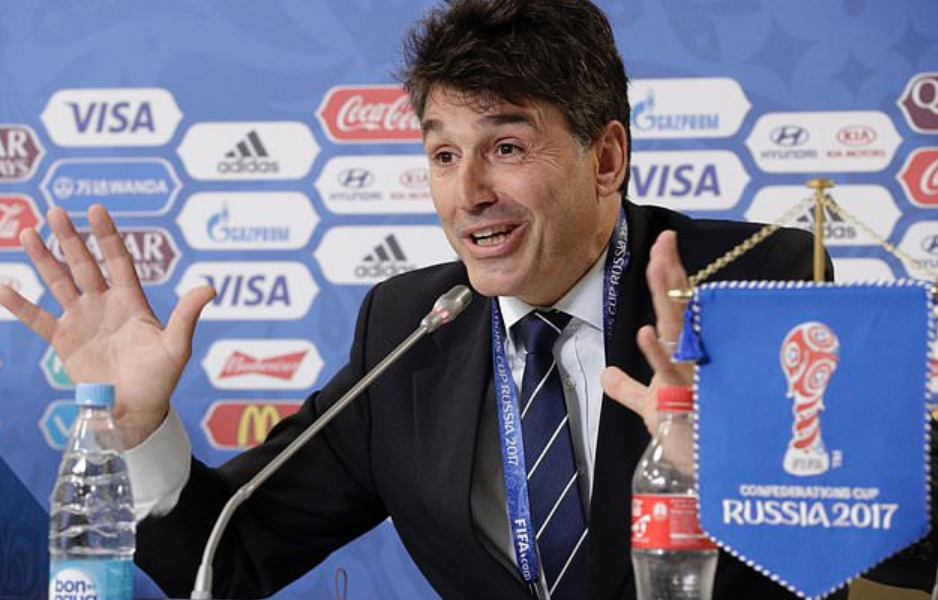By Samindra Kunti in St Petersburg
June 27 – Confederations Cup organisers say they are satisfied with the way the group stages have gone, but acknowledge that the video assistant referees need time to fine-tune their decision-making. Dubbed as the ‘half time’ press conference, FIFA and its Russian organisers gave their view on the tournament so far and the issues arising.
Top of that list was Confederations Cup refereeing which has too often taken centre stage following the introduction of VAR at a first major FIFA tournament. VAR decisions have often been confusing and time-consuming in the 12 games played so far – sometimes they been debateable and certainly they have slowed games down and interrupted the flow of the match.
On Sunday consternation reigned again in the group B game between Germany and Cameroon when Colombian referee Wilmar Roldan dismissed the wrong player to be later corrected by the VAR. FIFA’s head of refereeing Massimo Busacca (pictured) emphasised however that technology has helped referees to avoid major errors in the first round of the Confederations Cup.
So far VARs have overturned six game-changing decisions and the referees’ judgement was deemed to be correct on review in 29 major incidents. VAR will be in the spotlight again for the semi-finals between Portugal and Chile in Kazan on Wednesday and Germany against Mexico in Sochi on Thursday.
Busacca was positive about how the system has worked, but demanded more time to implement VAR properly, and the help of member associations. “In general we had really good results, but many aspects should be improved,” said Busacca. “Communication is crucial. It must be short and clear. Not too long, as everyone saw yesterday [Sunday]. We have to admit that is not good.”
“The implementation needs time, important member associations will start [with VAR],” said Busacca. “Germany will start in a few months. Italy will start 100%. At FIFA we just have a few competitions. We have the Confederations Cup and the Club World Cup before the World Cup.”
“We will never be perfect but we will achieve a reduction in the mistakes,” concluded Busacca. “Technology will be a big tool for prevention.”
If VAR has been a process of twisting and tweaking, of searching and improving, the organisers have shown themselves satisfied with how the tournament, without major organizational glitches, has been received so far. FIFA director of competitions Colin Smith also said that the overall operation has been carried out “at a very high level” throughout the four host cities.
Some 450,000 fans attended group matches for an average of 37,000 per match, topping South Africa in 2009. The matches have been broadcast in 183 territories, with eight million Russians watching the hosts take on Portugal for the top audience in a sports events in the country this year.
What doping?
CEO of the 2018 World Cup Local Organising Committee Alexey Sorokin was repeatedly asked about the doping allegations against the Russian national football team at the press conference, but Sorokin dismissed the allegations as “made-up news”.
“It is really good that Mail on Sunday focuses on such issues,” said Sorokin. “That means the tournament is going well. They are focusing on things of the past. It is very bizarre that this appears now and it is clear that it is made-up news.
“We have received a clear reply from FIFA that players have been tested pre-match and post-match and all results were negative,” continued Sorokin. “In general there haven’t been doping cases in Russian football in the last few years.”
“Despite the allegations there are clear-cut test results,” added Sorokin. “That is the most important thing. We don’t consider this to be a serious matter and it’s very strange that it’s in the papers.”
Contact the writer of this story at moc.l1745262396labto1745262396ofdlr1745262396owedi1745262396sni@i1745262396tnuk.1745262396ardni1745262396mas1745262396

